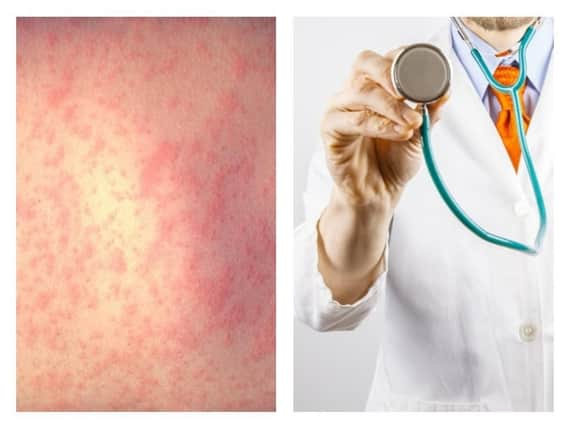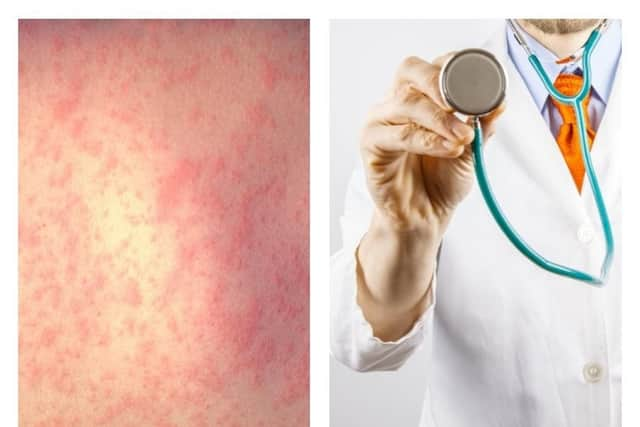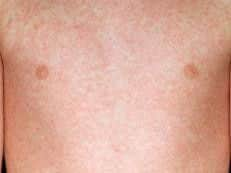Measles outbreak in West Yorkshire: Vaccination warning issued


People are being encouraged to check they and their children have had two doses of the MMR vaccine after confirming nine confirmed and three suspected cases of measles have been seen in Bradford since the end of March.
Public Health England (PHE) has reported an increase in measles across the country and in other parts of Yorkshire and the Humber during 2017/ 18.
Advertisement
Hide AdAdvertisement
Hide Ad

PHE is working with Bradford Council and the NHS to make sure anyone across the city who needs a vaccination to protect against the virus is aware.
Measles is a highly infectious viral illness, so anyone with symptoms is also being advised to stay at home and phone their GP or NHS 111 for advice, rather than visiting the surgery or A&E, to prevent the illness spreading further.
It is possible for anyone at any age to get measles and the illness can be more severe in teenagers and adults than in young children.
Advertisement
Hide AdAdvertisement
Hide AdDr Suzanne Cole, consultant in health protection with Public Health England Yorkshire and the Humber, said: “Measles can be a very serious illness and lead to severe complications, especially in people who are particularly vulnerable or have other health conditions.”


“The free MMR vaccine is a safe and effective way of protecting against measles, as well as mumps and rubella. It’s particularly important for parents to take up the offer of MMR vaccination for their children when offered at one-year-of-age and as a pre-school booster at three years-four-months.
"If children and young adults have missed these vaccinations in the past, it’s important to take up the vaccine now from GPs, particularly in light of the recent cases in Bradford.
"Check your child’s red book to see if they’ve received MMR vaccinations as scheduled, or check with your GP surgery if you’re unsure. Most healthy adults will have developed some immunity to measles but can still receive two doses of the vaccine from their GP too.
Advertisement
Hide AdAdvertisement
Hide Ad“Measles is extremely infectious to anyone who may not be immune. If you think you could have measles, it is really important to stay away from areas where you could come into contact with lots of other people – especially vulnerable patients in hospitals, care homes or other settings.”


Measles symptoms to be aware of include:
- High fever
- Sore, red, watery eyes
- Coughing
- Aching and feeling generally unwell
- A blotchy red brown rash, which usually appears after the initial symptoms.